Content Intel—episode 10: the power of incrementalism

Transcript:
Laura Dolan (00:02):
Hello everyone, and welcome to a 10th episode of Content Intel brought to you by Optimizely, and I couldn't have found a more appropriate guest for the occasion. I'd like to welcome our own Cate Waters. She is Optimizely's Enterprise Account Executive and Content Management Strategist. Cate, welcome to the show. It's so good to have you on.
Cate Waters (00:23):
Hey, Laura, I'm so excited. Thank you so much for having me. Definitely on my bucket list. So I'm stoked that we get to hang out together today. Thanks for having me.
Laura Dolan (00:31):
Me too, thanks so much. I know you are such a busy person in our company. You are killing it out there in the sales world, so I just can't thank you enough for taking the time to do this today. Cate has some very exciting news to share with all of us about a huge accomplishment in her career, but before we dive in, Cate, let me ask you how long you've been with Optimizely and how has the journey been for you?
Cate Waters (00:52):
Yeah, I've started in Optimizely in May of 2019, and it's been a roller coaster in all the best ways. So, since I've started we've actually acquired five companies, which sounds overwhelming when you say it out loud, but honestly, it's been so amazing to see our digital experience platform grow in such necessary and exciting ways. So it's been neat to see the technology just really jump and our value jump, and of course, in '21 with us having seven Gartner and Forrester Leader Awards given, it's clear that we're heading in the right direction and continuing to kick butt there. So, it's been really fun and I came in 2019. I had twins in December of 2019.
Laura Dolan (01:31):
Oh, wow.
Cate Waters (01:31):
I came back, got hit by a pandemic, made President's Club, and then had the year of a lifetime here in 2021. So, it's one of those things where you later in life I hope I get to write a book or give a TED Talk. That's another thing on my bucket list. And I think 2021 and Optimizely will be on the list of lifetime accomplishments. So, pretty darn cool.
Laura Dolan (01:53):
I think absolutely you should be. I agree with all of that. And I just want to say, side note, I am a twin, so congratulations on having twins.
Cate Waters (02:00):
Yes.
Laura Dolan (02:01):
Are they boy-girl, girl-girl, boy-boy?
Cate Waters (02:04):
So, they are boy-girl, Archer and Piper, and they just turned two last week. I have no idea how that happened. Everybody says-
Laura Dolan (02:11):
Oh, my goodness.
Cate Waters (02:11):
... take pictures and they're not kidding, because every time a picture comes up, I'm like, "Wait, that happened? Where was I?"
Laura Dolan (02:17):
Right.
Cate Waters (02:17):
It's all a haze in all the best ways, and then I also have a seven-year-old, Colton, who is start his second semester of first grade and I have no idea how that happened either.
Laura Dolan (02:27):
Oh, that's fantastic. We both have a Piper. I have a Piper, too, but she's a cat.
Cate Waters (02:31):
So, such a fun name. Oh, well, so super cute. Piper Joy.
Laura Dolan (02:36):
Oh, I love it.
Cate Waters (02:37):
She's definitely the lady of the house and she runs this place. No question.
Laura Dolan (02:39):
That is awesome. Well, we are definitely kindred spirits in so many ways. I am a twin and I have a twin brother. So, we'll talk some more about that, for sure. Well, awesome, sounds like an amazing journey so far. I came from one of those five acquisitions. I came over from the Zaius acquisition in early 2021, so it's been a wild ride for me as well. So it's so cool that you've gotten to see the other side of it and see a lot of these companies come on board to our digital platform.
Cate Waters (03:07):
Yeah, I'm obsessed with Zaius by the way.
Laura Dolan (03:08):
Yeah?
Cate Waters (03:08):
So, anybody who's listening to this ODP, Optimizely Data Platform, 10 out of 10. Definitely obsessed. So glad we could to have them as part of our family and something I talk about every day. So cool.
Laura Dolan (03:20):
100%. Thanks so much for the plug. Yes, the CDP before the ODP, I was getting familiar with it for two months. I was very new to Zaius before the acquisition so that was an onboarding on top of onboarding experience, but it was a wild ride and I loved every minute of it.
Cate Waters (03:38):
Heck, yeah.
Laura Dolan (03:39):
Well, just to switch gears a little bit, you recently gave a talk at the Digital Summit and I would just love to know how you got involved with something like that.
Cate Waters (03:48):
So, the fun part about Digital Summit is its very regionalized marketing opportunity for in-person meetings, certainly dive in together, both with vendors, but more importantly with agencies and marketing executives to really figure out where the current market is, where it's going, get some training on things. The new cool thing right now is TikTok.
Laura Dolan (04:07):
Mm-hmm (affirmative).
Cate Waters (04:09):
And then really also learning those new skills, tips and tricks for old-school things like marketing automation, emails, and data. And so the Digital Summit has done a phenomenal job of really coming to the marketers' city, bringing in valid important speakers and vendors, and giving these marketing executives an opportunity to stay current and recent. And so I was excited to be a part of it. I spoke both at their Miami Digital Summit as well as here in Charlotte.
Laura Dolan (04:35):
Nice.
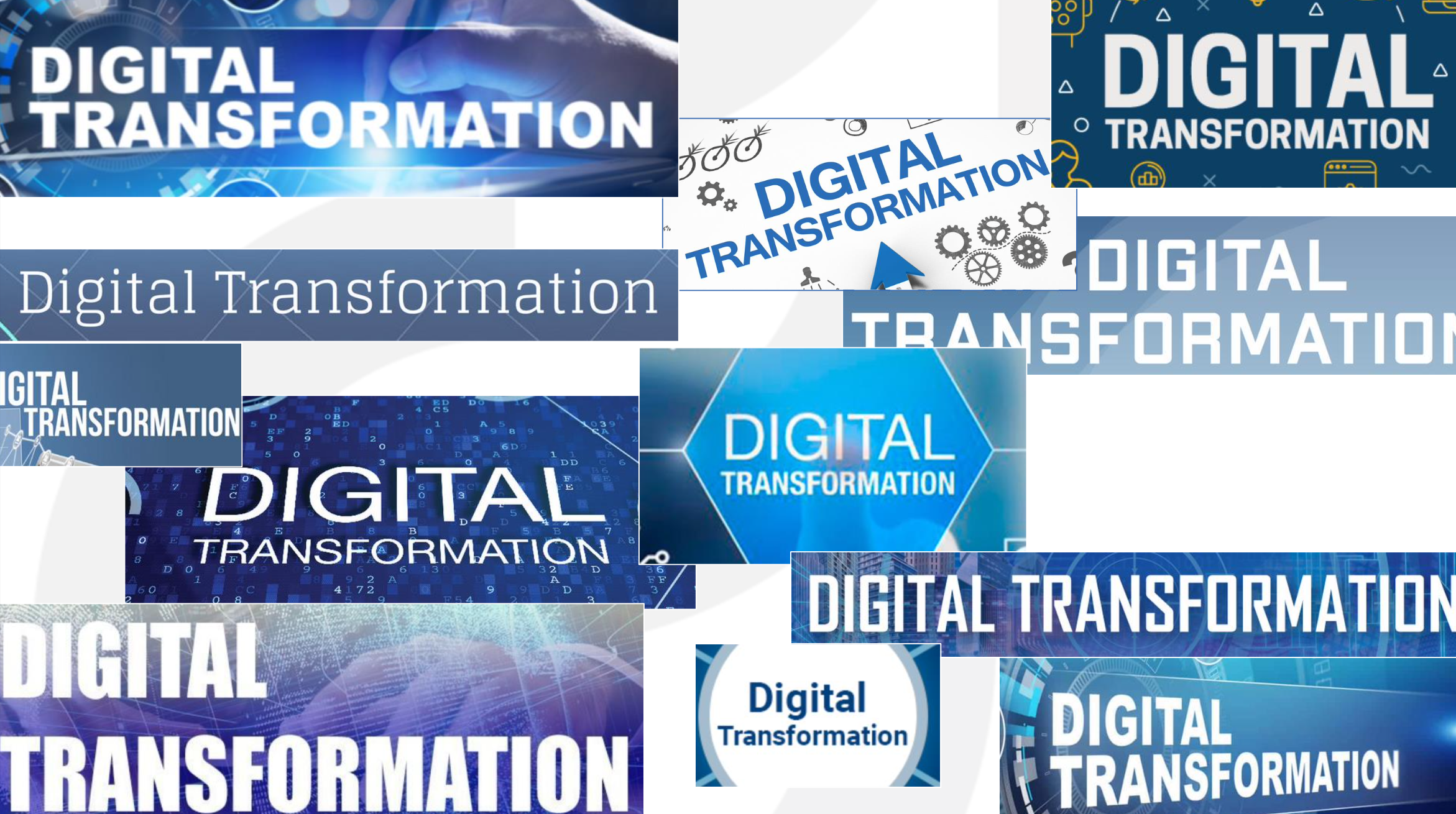
Image Source: Cate Waters
Cate Waters (04:35):
And the great opportunity for Optimizely to get in front of marketing executives, but I also think more importantly to remove the vendor and buyer relationship and just really sit down and dig in on the same side of the table and say, "What issues and problems are you guys dealing with today?" And content and digital transformation is this word that is everywhere. It is the saying that everybody wants to be a part of. It's this exciting light at the end of the tunnel, fireworks on New Year's Eve type of project that everybody says they want to be a part of. But in reality, nobody talks about day two. Nobody talks about what happens when New Year's Eve is over and the police officers and the city workers are cleaning up the mess from the night before.

Image Source: Cate Waters
Laura Dolan (05:17):
Exactly, yes.
Cate Waters (05:17):
Right?
Laura Dolan (05:17):
Yeah, exactly.
Cate Waters (05:18):
And so we really have to sit down and come back and say, "Let's stop talking about the fireworks and let's really dig into, what does day two look like?" And so I'm excited that I get to be somebody that really sits down with groups and with marketing executives and say, "Let's look at incremental steps. How can we make this project more exciting every day versus just on day one?"

Image Source: Cate Waters
Laura Dolan (05:38):
So, I understand that something amazing came out of it for you, and I would love for you to share with our audience what's in store for you and what came out of the Digital Summit.
Cate Waters (05:47):
Yeah, so it was really neat. I love to speak, I love microphones, I love being on camera. I love an opportunity to get down in the community and talk about marketing things. And so, I had a great speech in Miami and we had a marketing journal attend and reached out to me after and mentioned that they loved my presentation and they thought it was really valuable for marketing executives. And asked me to actually present a written piece for their quarterly journal that's coming out in Q2 of 2022. So, it's a little bit less exciting in the sense that I have to take all my energy and put it down into words, and I don't get to go on stage or be in front of a community, but I do get to share all of these ideas and project tips and tricks that everybody's getting excited about. And so I'm really honored that I get to do that, and it will come out in their Q2 journal.
Laura Dolan (06:32):
Excellent.
Cate Waters (06:32):
And check me out on LinkedIn to see when that's coming out, and also send me good vibes, prayers, and high fives for figuring out how to put all these exciting ideas into a word count limit.
Laura Dolan (06:42):
Hey, if you need my help, I'm an editor by trade, so...
Cate Waters (06:46):
I'll absolutely need your help because editing is not my thing.
Laura Dolan (06:49):
I am the queen of condensing. I always say, "Say as much as you can, the least amount possible." So I am here for you. But that is incredible.
Cate Waters (06:57):
Literally the opposite.
Laura Dolan (06:59):
That is incredible, I've been published before. It is an amazing accomplishment, so congrats to you for getting the honor to be asked to do something like that, let alone, get the opportunity to put your thoughts into words and making it into something tangible. We could speak on stage. I love speaking on stage, too. Obviously, I love being in front of microphone as well. I should really ask you to be my co-host. I think if I- [crosstalk 00:07:24].
Cate Waters (07:23):
If I get more microphone time, let's do this thing.
Laura Dolan (07:26):
Yes, absolutely. You can't put a price on putting your words on paper and having people actually hold your words and read them and then it perpetuates you forever, and I just think that's incredible. And, honestly, I'm an old-fashioned person. I'm a page turner and Kindles are great and everything and getting to read on your phone, whatever, but there's just something about holding a book or holding just something tangible. And that's amazing that that's happening for you.
Cate Waters (07:54):
Thank you. I think the best part about words for me is that, when you're on stage and you're speaking and people are really engaged, the good part is they're not on their phones, they're not on their computers. They're really sitting there marinating and being in that moment with you. The bad part about that is, they're not taking notes, right? They remember a few things, but they attend 15 or 20 of those sessions during the summit.
Laura Dolan (08:14):
Sure.
Cate Waters (08:15):
And so words allows them to really take back what they loved, go back to their desk, read over it again and really take that in again. And so, I love that I get to be present with them. That's the best part about presenting, but I'm excited about the words being able to sit on their desk and when something marinates and resonates, they can pull that back out, take advantage of those tips. It's a lot more like that they're going to actually do those things. And that's the whole point of why we do this, right?
Laura Dolan (08:38):
Right.
Cate Waters (08:38):
If we want to see these people get excited about incrementalism and we want to see them feel more excited about these big digital projects. And so, it'll be neat. I can't wait for see it come to life.
Laura Dolan (08:46):
So, dive a little bit more into exactly the power of incrementalism and what it is. Where did your inspiration come from?
Cate Waters (08:52):
Yeah, so the thought process around a digital transformation and really kind of the intimidation factor of it is you want a new website and we talk to everybody about that. That's really what my full-time job is, is the way look at what your digital transformation goals are and where you are today and where you want to take that. Well, the side effect of is you're looking at kind of this long list of maybe moving an entire website or maybe moving just like Optimizely they did in 2021, you're literally your entire digital, your house. Just your entire presence. There we go, your entire digital presence and moving it somewhere else. That's incredibly overwhelming. And so Deane Barker, a colleague of mine here at Optimizely, he is Mr. Content, by the way-
Laura Dolan (09:34):
I know him well. [crosstalk 00:09:34]
Cate Waters (09:34):
...he's been on your podcast in the past.
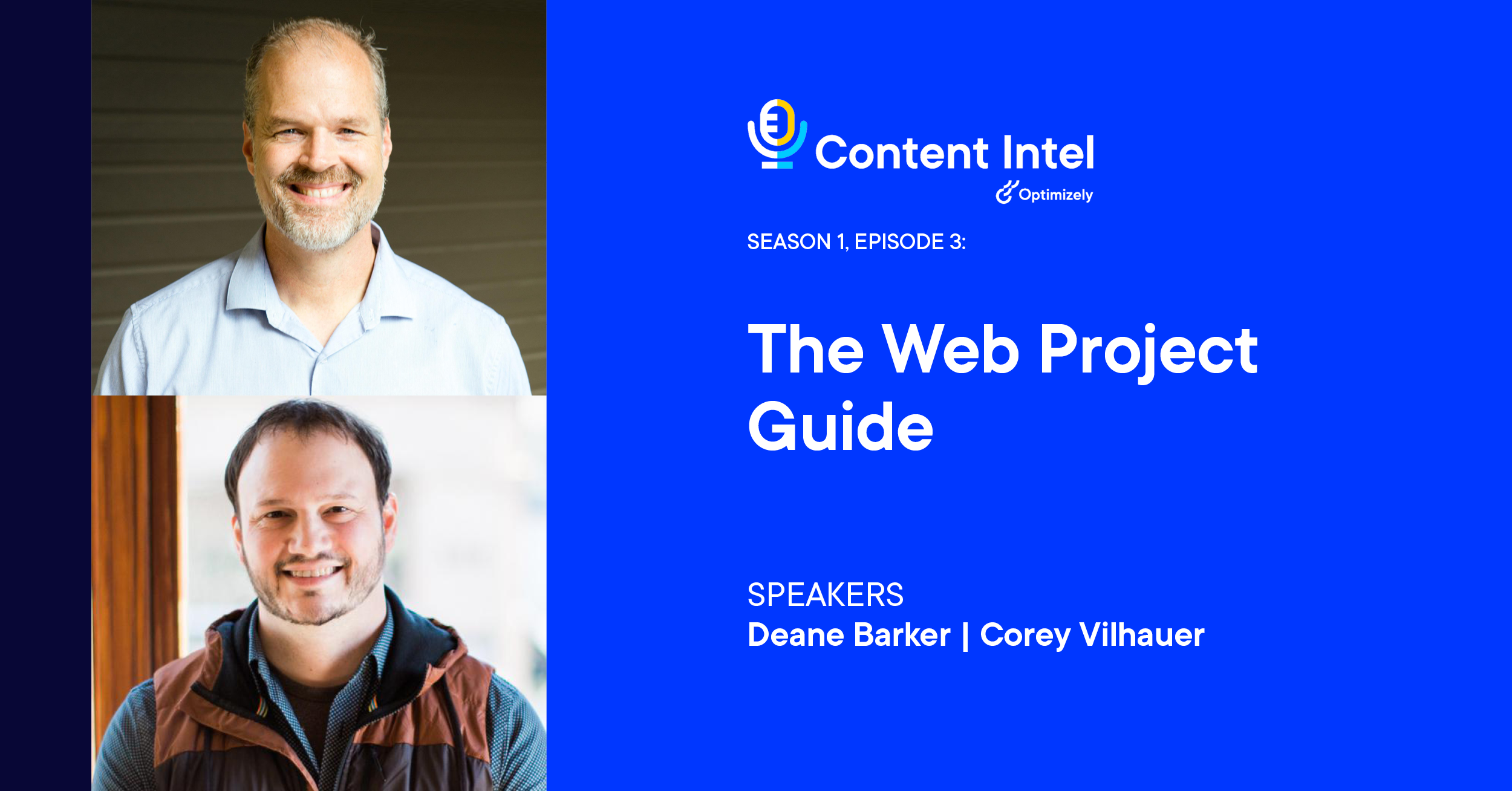
Laura Dolan (09:34):
Yes, he has.
Cate Waters (09:36):
He does a great job of breaking down projects into steps. And one thing I was thinking around in these kind of the power of taking a step, it's really looking at a project as getting excited about the next step versus getting excited about the finish line. But how do you have people get equally excited about step two as they do about the finish?
Laura Dolan (09:57):
Right.
Cate Waters (09:57):
And so looking at ways of helping marketing teams only set those expectations. So, it's one of the things I always talk about from a sales perspective is if you tell me what to expect, then when that happens, I'm happy, right?
Laura Dolan (10:13):
Right.
Cate Waters (10:13):
But if I don't have any expectations and I've set my own, then you might have knocked it out of the park from a project delivery, but that's not the expectation that I had. And so I'm going to come off being disappointed. So the number one mistake that people make in these digital projects is they're not setting expectations.
Cate Waters (10:29):
And so my goal is to really give them five strategies to make sure that there's no disappointment. And those five strategies range from explaining that you have goals and you have activities, explaining how to instill a culture of incrementalism, helping them set expectations, and then making those expectations exciting.
Laura Dolan (10:46):
Right.
Cate Waters (10:46):
Then we're going to look at measurement. If you are going to set a step-by-step expectation, then you've got to help people understand how those steps are being measured. And then speed. If you're going to do step by step, then you've got to look at speed. Because if we're not looking at A to B, we're looking at all the steps between A to B, then you've got to get fast and slow and really help people understand how some is going to be fast and some is going to be slow, but forward is still happening.
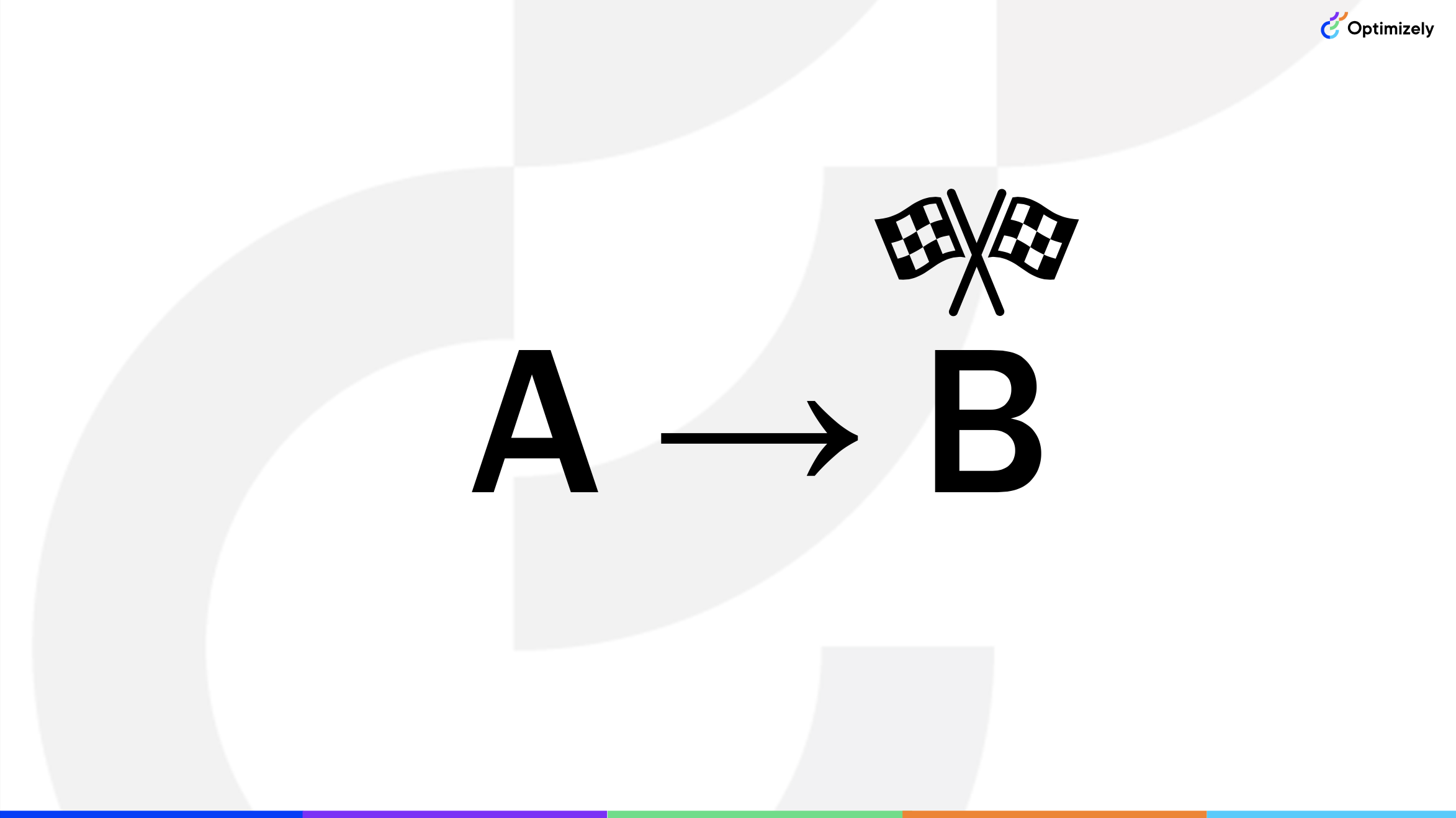
Image Source: Cate Waters
Laura Dolan (11:10):
Right.
Cate Waters (11:11):
You've got to be quick, but you've got to do that safely. And then lastly, the concept of experimenting. That we've got to give everybody permission to fail.
Laura Dolan (11:19):
Mm-hmm (affirmative).
Cate Waters (11:19):
One of the big things that we talk about and what you'll find, if you ever come to my speech about incrementalism is I relate a lot to a weight loss journey that I've been in. So in 2021, I lost 130 pounds.
Laura Dolan (11:31):
Wow, good for you.
Cate Waters (11:32):
Thank you.
Laura Dolan (11:33):
That's incredible.
Cate Waters (11:33):
Basically, lost like four toddlers.
Laura Dolan (11:35):
Wow.
Cate Waters (11:36):
So very exciting. But I think the reason why this one resonates really well is because first off, everybody's been through a weight loss journey. You're either trying to lose weight or increase your fitness. Yeah, both of those things are incremental, right?
Laura Dolan (11:49):
Right.
Cate Waters (11:49):
When I got on the scale in January, nobody talks about the 0.2 loss, the 0.6 loss. Everybody talks about the 130-pound loss.
Laura Dolan (11:58):
Exactly.
Cate Waters (11:59):
Well, to get 130 pounds in 12 months, it was 157.2's, right?
Laura Dolan (12:05):
Right.
Cate Waters (12:05):
So, we dive in and say, "Okay, let's relate this big digital project that you're calling a transformation. Let's take a step back and say, it's a goal that has a series of activities." So the goal is to lose 130 pounds. The goal is to transform your website. Well, the activities are going to be updating your content, testing to see what visuals your customers enjoy. Looking at what content is resonating, what recommendations people are taking advantage of. What are the search results that people are finding? Those are activities like running out in the street, like avoiding the donuts, like focusing on a no-sugar day. Those are the activities that you can actually take action on. You can't take action on a digital project. That is a goal.
Laura Dolan (12:48):
Right.
Cate Waters (12:48):
Not an action. And then looking at measurement. So for me, losing weight, the measurement was the scale. And actually towards the end of the year, the measurement was the circumference of my waist. That's how I know that something's happening.
Laura Dolan (13:02):
Exactly.
Cate Waters (13:03):
Well, how does your team know that something's happening if you're taking incremental step by step? You've got to measure it. And so I think a lot of things are really obvious tactics, but really giving marketers permission to say, "Hey, guys, we are going to transform digitally. And it's going to be really exciting, but we're going to do it step by step." Maybe step one is the homepage. Maybe step two is the menu item. And maybe step three is testing the font, but these are all super important steps to success. Because at the end of the year, our entire digital presence is going to be different.
Laura Dolan (13:40):
Exactly.
Cate Waters (13:40):
And letting people trust in that process.
Laura Dolan (13:43):
It is definitely a process. And I love how you break it down to steps because sometimes looking at the big picture in itself is overwhelming. So, if you break it down like, "We're going to work on this page this week, we're going to work on this language next week." It's the metaphor where you're trying to eat an elephant, it's one bite at a time. That's probably a terrible metaphor.
Cate Waters (14:06):
But I don't think anybody eats elephants, but we all use that metaphor.
Laura Dolan (14:09):
But we use that metaphor and it actually makes me a little bit nauseous to talk about that metaphor. But I can't think of better one right now where you're looking at the bigger picture, but if you're going to eat this entire elephant, you do it one step at a time, one piece at a time. So, if you're going to build a whole website, you got to build it page by page. And sometimes you have to spend extra time on the language of the landing page or your CTAs. And you cannot do that without experimentation. That is so imperative. And obviously, it's one of the biggest beliefs we have here at Optimizely, if you set yourself up to fail, it's okay, because you can go back and change it. And that's how you learn.
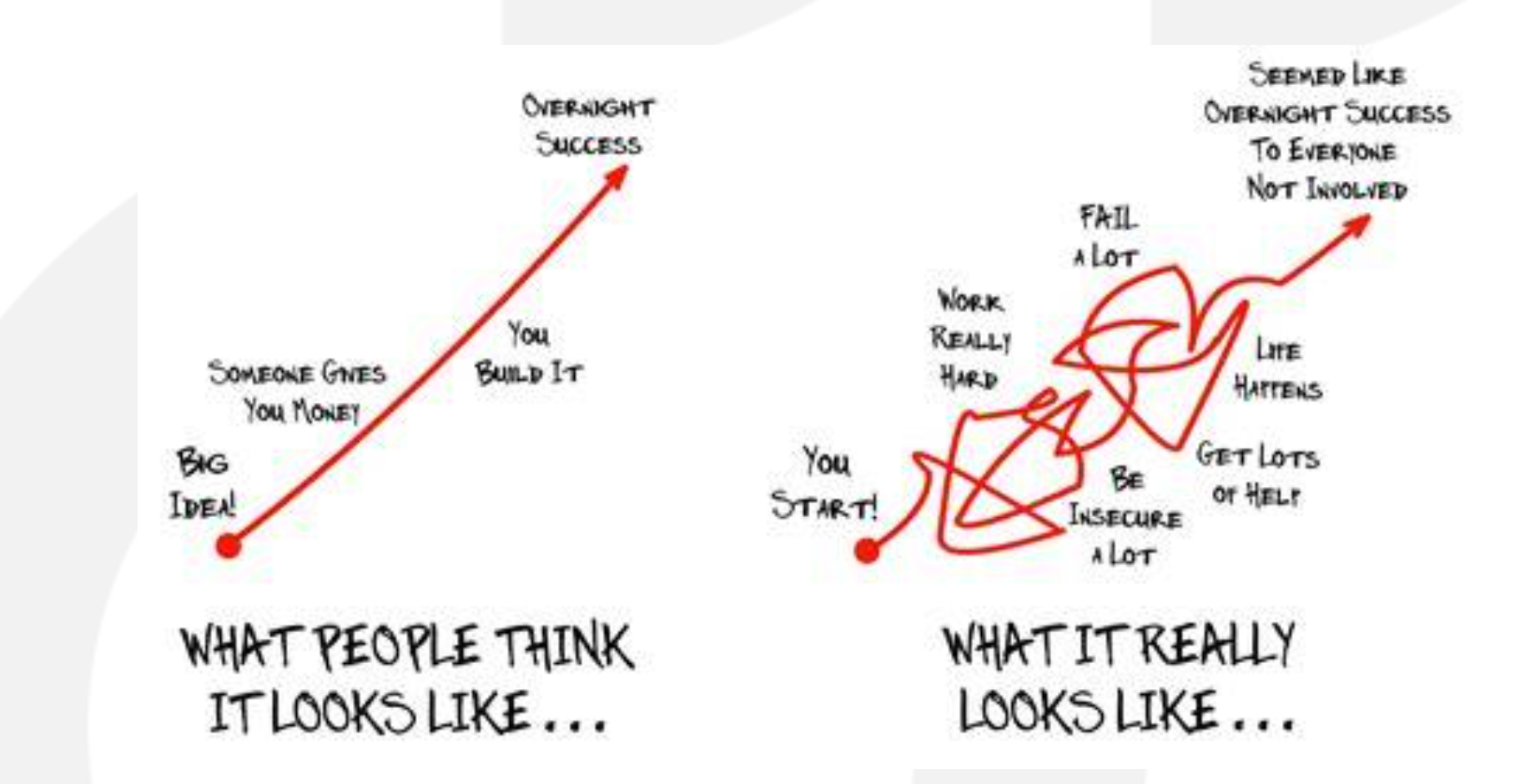
Image Source: Cate Waters
Cate Waters (14:52):
And I think risk mitigation is something a lot of marketers don't talk about. Well, all of us, if you're calling Optimizely to make a change to your digital technology, you're taking a risk. You're saying, I don't like what we're doing now. And I want to change it. And as the champion of that project, I believe Optimizely is the better way, right?
Laura Dolan (15:09):
Right.
Cate Waters (15:10):
But you're taking a risk. You're standing in front of a group of people and saying, I think we should do it differently, I'm willing to stand behind that choice. Well, risk mitigation is a big thing that we never actually come out and admit to.
Laura Dolan (15:20):
Right.
Cate Waters (15:20):
So when it comes to experimentation, what you're doing is mitigating risk. You're saying, I don't want to change everything. I want to change this one thing. And if I change this one thing, what is the data that I get out of that? And then I validated that assumption and then let's do that every day for the next month and validate 30 assumptions. And so, 30 assumptions means you've changed an entire website, but you only risk mitigating a 30th of that at any given time.
Laura Dolan (15:48):
Right.
Cate Waters (15:48):
And so, one of the things that I think nobody stands up in front and says, "It's okay to fail."
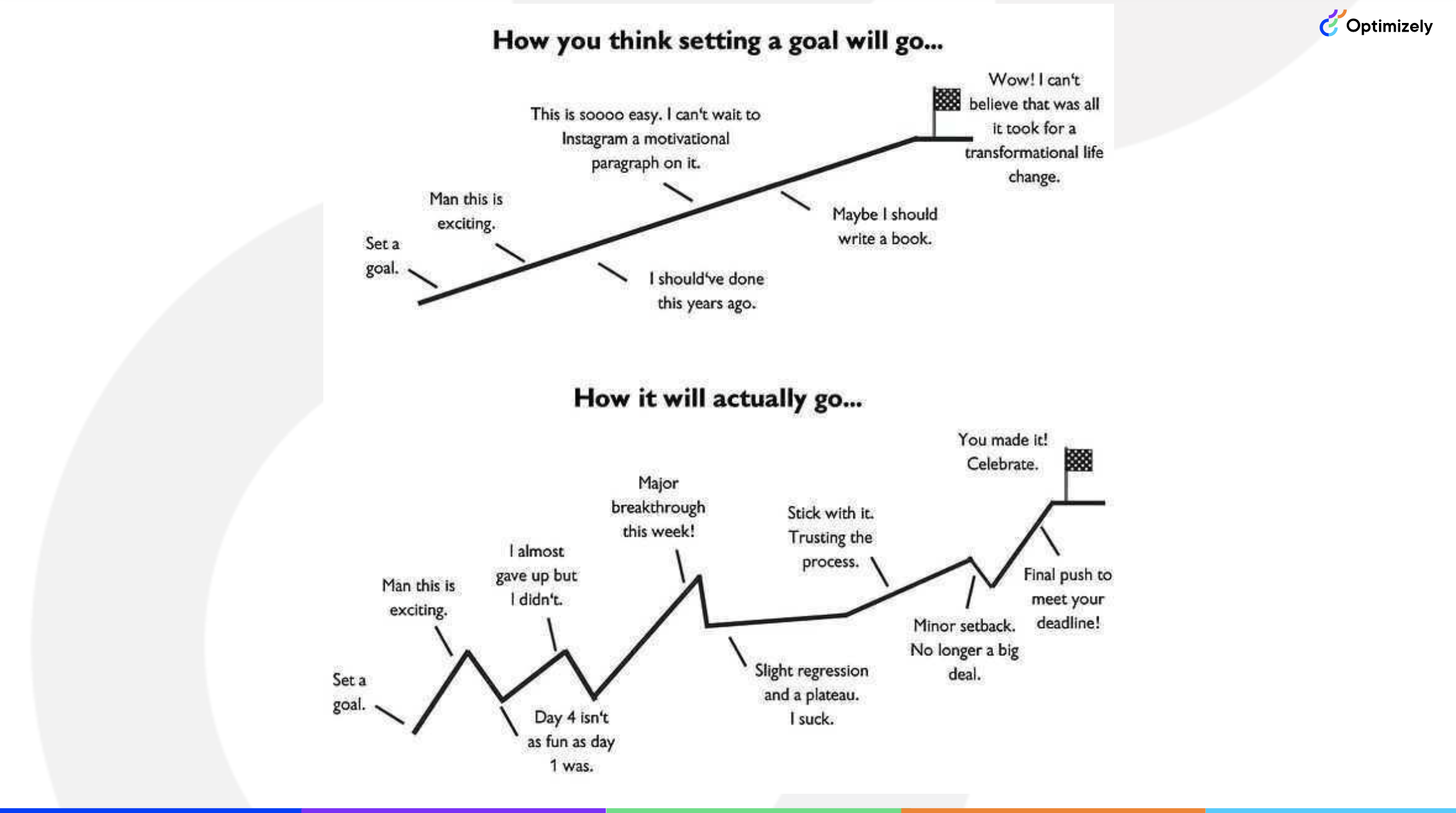
Image Source: Cate Waters
Laura Dolan (15:53):
Mm-hmm (affirmative).
Cate Waters (15:54):
So, it's okay. Because guess what? On day two, you're going to lose the champion that bought, or you're going to lose the developer that had all the knowledge, or you're going to lose the budget because a pandemic is going to hit, right? And so you've got to be able to say, "You know what? We had this plan, this plan was exciting. It was valuable. But step two is going to be step 1.5 for the next few weeks." And that's okay. And so the confidence of knowing that's okay because you mitigated your risk, because you're experimenting, and because you're taking it step by step, there's no drastic failure. It's just you saying, "This brick, we have to adjust a little bit before we move on to the next brick." And that's the advantage to incrementalism is there's so much less pressure as well as acknowledgement that sometimes it just doesn't work.

Image Source: Cate Waters
Laura Dolan (16:43):
Right.
Cate Waters (16:43):
But as my favorite, the colleague, Deane Barker says, "If you don't like something, just wait a minute, right?" And how awesome is that?
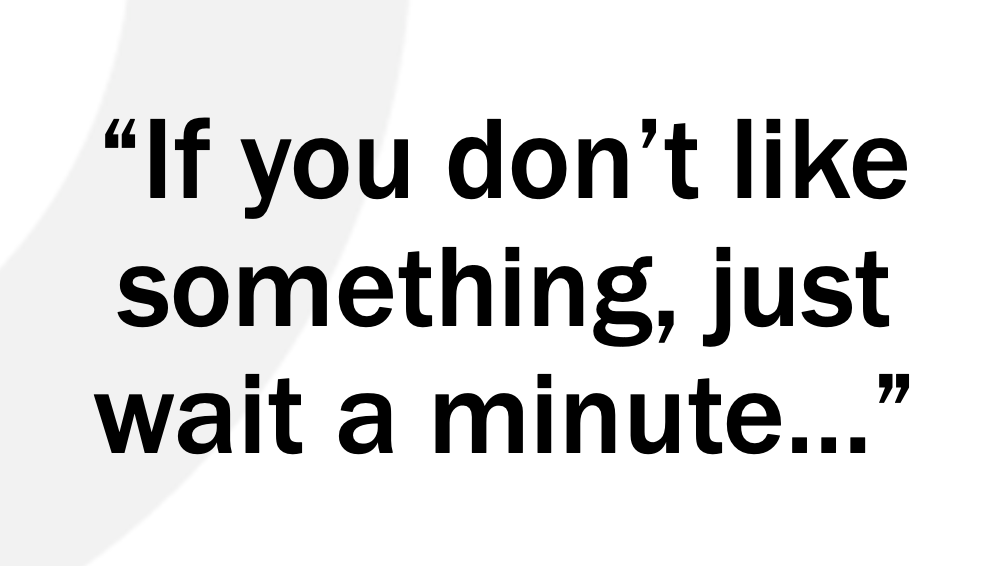
Image Source: Cate Waters
Laura Dolan (16:53):
It's absolutely true. And it's the same with SEO. One misconception about SEO is that people think if you make a change to your site, you're going to have immediate results the next day. And that's absolutely not true. You may see the results of something you did on your site six months later in your analytics. It is just a matter of being patient as well. And I think it also creates a lot of resilience individually and within a team because I don't want to say getting used to... You don't want to get used to failing, but the fact that failure is okay and helps you go back to the drawing board each time. You just said it takes the weight off, takes the pressure off and that you have that freedom. You have the time to go back and try something else.
Cate Waters (17:35):
Right, because what they say is friction kills momentum, right?
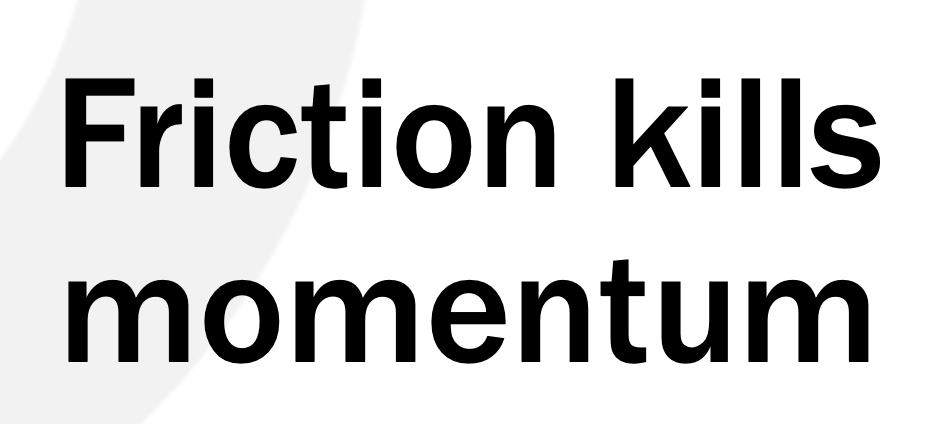
Image Source: Cate Waters
Laura Dolan (17:38):
Mm-hmm (affirmative).
Cate Waters (17:39):
So, if you have the friction of the psychological worry about failing, or you have the friction of the physical concern about maybe you lost a teammate or you lost a budget or your developer staff has to go focus elsewhere, then you're killing momentum. But incrementalism allows you to focus on each individual step, so momentum never dies. And one of the big things that we talk about in my presentation is there was a test that they did. And it talked about in "Art and Fear" by David Bayles and Ted Orland. And what it talks about is there's two, basically two websites that they were testing from a psychological component. One website changed things often. Now, not a lot of things on the website changed, but they changed the visual perspective of it, or they changed the way that it was displayed. But the actual content didn't change all that often.
Laura Dolan (18:29):
Mm-hmm (affirmative).
Cate Waters (18:29):
With another website, they added new content, but only once a quarter. And so, really what we were judging was quality versus quantity.
Laura Dolan (18:38):
Sure.
Cate Waters (18:39):
So, the new content was very, very full of quality, right? It was new. It was up and coming. It was sexy. It was exciting, but it only changed once every three months. Group two, was all about quantity. And so the content didn't change that often, but it looked it was new content because it visually changed it or changed the menu or changed the way that it was displayed. And so what it was seen as people saw a higher quality in the quantity of changes. So, let me take that back to you. Basically what they said was, "You changed it so often that psychologically we assumed it was higher quality because of that."
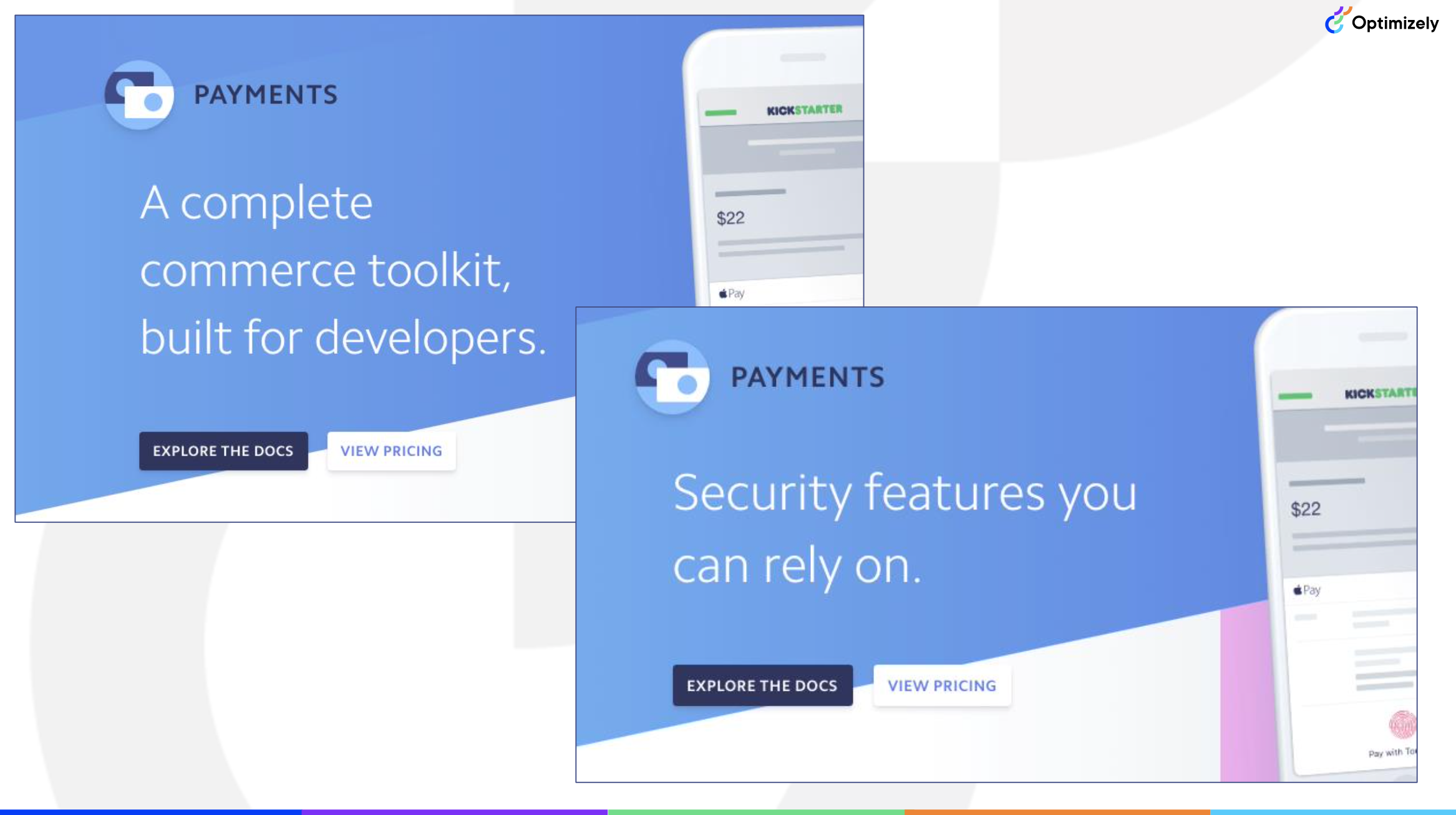
Image Source: Cate Waters
Laura Dolan (19:17):
Wow.
Cate Waters (19:18):
And so, what the human race is saying, is that we like change.
Laura Dolan (19:22):
Yes.
Cate Waters (19:22):
Change to us means improvement.
Laura Dolan (19:25):
Right.
Cate Waters (19:25):
And when that actually be improvement, but psychologically, our brain sees change as improvement.
Laura Dolan (19:31):
That is so true.
Cate Waters (19:31):
And so you need to constantly be changing, whether you're iterating it just visually or actually contextually, it doesn't matter. And that's a very powerful capability for marketers because with experimentation, you can make a small change that is seen psychologically as very qualitative. When in reality, all you did was just change the way you've organized the page.
Laura Dolan (19:52):
I'm going to use a very basic example here. And I'm going to use Taco Bell as an example and how much they have changed not only their branding, but like their color scheme on their restaurants. And it's something I've noticed lately where you look at an old Taco Bell and a new Taco Bell and how simple it is now, it's literally two colors. Whereas years ago, it was like four or five colors.
Cate Waters (20:16):
Mm-hmm (affirmative).
Laura Dolan (20:17):
And again, seeing it evolve over the years and just seeing that simple change, their product didn't change. They're still making food. I mean, they may change up the menu here and there, but looking at that as a consumer, I think, "Huh, okay, they're trying to update their look and attract new audience members." And I commend them for that, but it's just a very basic example, but it was something I was thinking about when you were talking just now about change, how you see that change and you think, "Oh maybe their food's better."
Cate Waters (20:49):
Exactly. And you know, what's ironic about it is Taco Bell actually deeply simplified their menu.
Laura Dolan (20:54):
They did.
Cate Waters (20:54):
So, if you look at over the last two years, it's almost 50% smaller.
Laura Dolan (20:57):
Yes.
Cate Waters (20:58):
But most people would assume that the leveling up of the branding, as well as the simplification meant that their food is better.
Laura Dolan (21:05):
Mm-hmm (affirmative).
Cate Waters (21:06):
Right. So it's all psychological. They actually got rid of a lot of stuff.
Laura Dolan (21:09):
Right, and sometimes that's better. I think less is more. You go to The Cheesecake Factory and look at the 30 page menu. It's like, "Hey, that this is going to take-
Cate Waters (21:18):
But they're the only people that could do all 30 pages good.
Laura Dolan (21:21):
I know. But then-
Cate Waters (21:23):
Nobody else could hack it.
Laura Dolan (21:24):
Exactly, you go to another restaurant and it's like four or five things on the menu and it just makes it so much easier to choose. Sometimes if I know I'm going to Cheesecake Factory, I'll go online and choose first, because I'm like, "I don't want to be sitting there for a half hour trying to figure out what I want."
Cate Waters (21:36):
Oh, yes. Well, and one of the big things about that I think related to Cheesecake Factory, tangentially, is I feel executives in the marketing group always worry about validating their assumptions, right? So, not only are we testing to make sure that what they think is going to happen is going to happen, but when you're making a big change in a digital property, you also have other people that you have to report that change to, a CEO, CMO, CFO, CIO.
Laura Dolan (22:07):
Oh, yeah.
Cate Waters (22:07):
And those people don't understand marketing or marketing metrics. That's not what their specialty is. And so you have a HIPPO problem. That's what we call that here at Optimizely. The highest paid person's opinion.
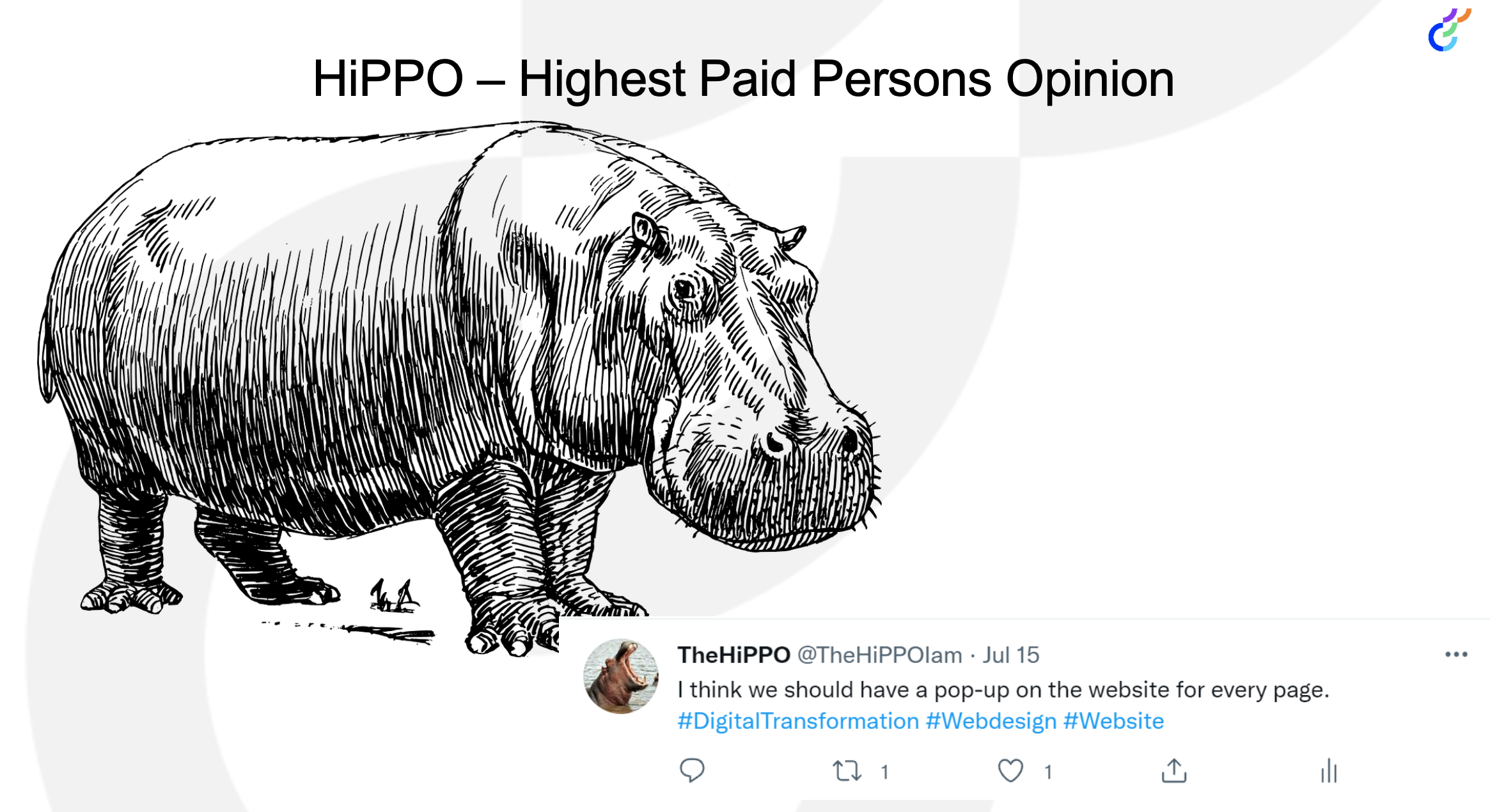
Image Source: Cate Waters
Laura Dolan (22:16):
Right.
Cate Waters (22:17):
So, you've got somebody in the room that has a really high title or really high paycheck that's got an opinion about something on the website and how do you respectfully tell them, "You know what? That's just not really what we're going to do, well, you test it." Right? So, not only are we mitigating the risk of making a digital transformation or taking a digital property and changing it. But we're also mitigating the risk of the HIPPO. And we're saying, "You know what? I love your idea. All ideas are important. So let's test your idea on a very small audience, on this one side page, and then validate that data to help you understand that's not really a great direction for the brand." So, Taco Bell, being able to know that that branding change is going to make an impact is entirely through experimentation. The example I always give is Snapchat.
Laura Dolan (23:02):
Yes.
Cate Waters (23:03):
Evan, the CEO of Snapchat changed the entire UI of Snapchat overnight. Didn't tell anybody it was coming, released it. And his stock dropped over 30% the next morning, because guess what? He didn't test it.
Laura Dolan (23:16):
Right.
Cate Waters (23:17):
All he had to do-
Laura Dolan (23:18):
He basically just put it out there and nobody knew what was coming. Nobody knew how to proceed because they didn't know how to use it.
Cate Waters (23:24):
Yeah, because he was the HIPPO.
Laura Dolan (23:25):
Right.
Cate Waters (23:26):
He said, "I'm to do, I'm going to do what I want." Well, he cost a lot of people a lot of money. And so we don't want that. We want the opposite. So, let's go have these great ideas and everybody in your company, by the way, has a valuable opportunity for these great ideas.
Laura Dolan (23:38):
Right.
Cate Waters (23:38):
From the front desk genius to the marketing person, to the IT person, to the salesperson, we have a lot of opinions. Some of them are great. All the way up to the executive level, get their opinions, throw them in a parking lot, test them out as things become available because that one person might surprise you. And you have a great idea that makes a huge revenue impact that you had no idea about.
Laura Dolan (24:01):
Exactly.
Cate Waters (24:02):
So, lots of ways to both be proactive and also reactive. And so that incrementalism and that step by step is really my goal in giving marketers the power to say, "We're going to do this, but we're going to do this step by step. We're going to mitigate our risk. We're going to experiment and we're going to set a culture of incrementalism and let's go out and get it." And that is why I hate the words, "digital transformation", because we are we're transforming, but we're doing it step by step. And so let's stop setting terribly huge end of the runway, huge light fireworks, New Year's Eve expectations and let set expectations that the next step forward is going to be a great step, whatever that looks like, because we are not going to stop walking forward.
Laura Dolan (24:43):
I love that. That is such a different way to a look at something. And you have helped change my perspective on this, Cate. I hope that you have been able to inspire other people to do the same. I'm sure you have, you are a powerhouse, like I said. So, what is next for you? Where are we going to go from here?
Cate Waters (24:59):
So, I hope to be able to get back out in the community again, Digital Summit has about another 15 or 20 presentations in 2022. And I also think that now that we're getting a little bit more in person, I think it's probably going to be delayed a couple months, thanks Omicron, but I do think in-person is definitely something we're all craving and excited about. So, the opportunity to get out into the community with marketers, learn what their incrementalism ideas are, what their successes and wins are, be able to talk a little bit more from a case study perspective, dive into some of our customers and look at some of their tests, and their digital projects and what their wins are and be able to share those out into the community.
Cate Waters (25:40)
We'll be exciting. We've got some really cool projects that I've partnered with here in 2021, to be able to see kickoff in '22. So, in my world, we're going to keep ongoing, and see these things come to life and then adjust our presentations to talk about these exciting wins. And then, I hope we get to do this again because this was awesome.
Laura Dolan (26:01):
I love it. I hope it all comes to fruition for you this year. And I'm really excited to see your piece published. So please post that on LinkedIn as soon as it is. And for those of you who are not connected to Cate Waters on LinkedIn, please go and follow her, connect with her right now. Expand your network. She's a great person to have in your corner. Cate, I can't thank you enough for coming on to the podcast today. Thank you so much.
Cate Waters (26:25):
Thank you. And you guys have a great Happy New Year. Let's do this!
Laura Dolan (26:27):
Absolutely. Thank you all so much for tuning into this episode of Content Intel. I'm Laura Dolan. I will see you next time.
Laura Dolan (26:34):
Thank you for listening to this episode of Content Intel. If you'd like to check out more episodes or learn more about how we can take your business to the next level by using our content, commerce, or optimization tools, please visit our website at optimizely.com, or you can contact us directly using the link at the bottom of this podcast blog to hear more about how our products will help you unlock your digital potential.



